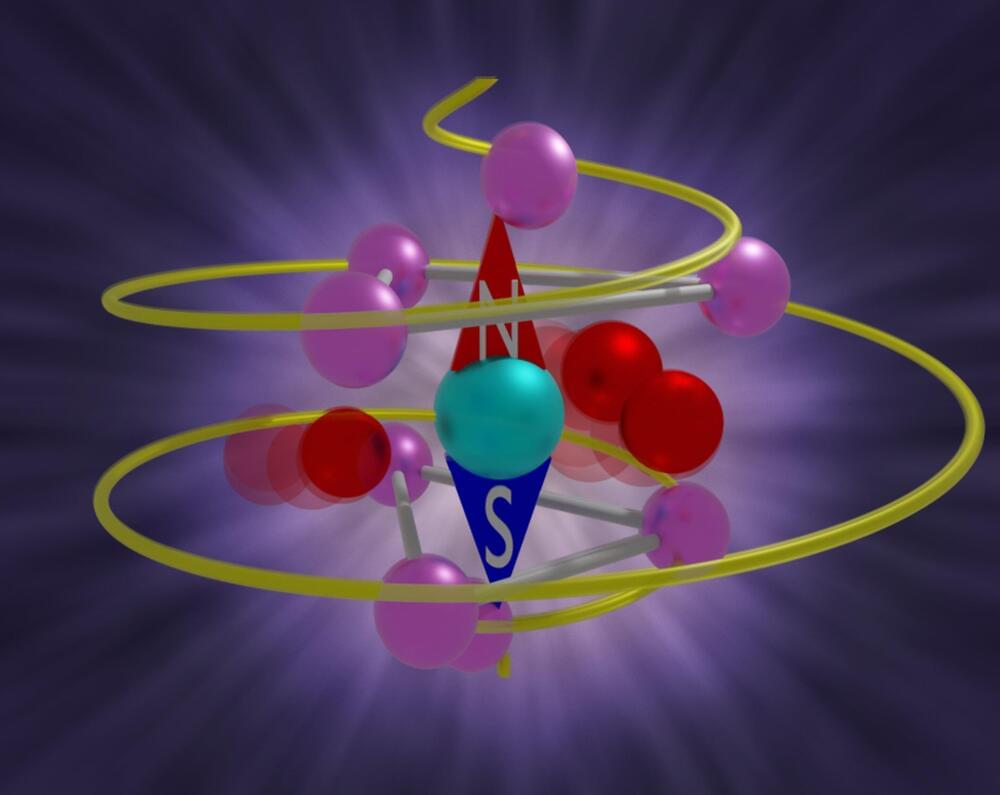Quantum materials hold the key to a future of lightning-speed, energy-efficient information systems. The problem with tapping their transformative potential is that in solids, the vast number of atoms often drowns out the exotic quantum properties electrons carry.
Rice University researchers in the lab of quantum materials scientist Hanyu Zhu found that when they move in circles, atoms can also work wonders: When the atomic lattice in a rare-earth crystal becomes animated with a corkscrew-shaped vibration known as a chiral phonon, the crystal is transformed into a magnet.
According to a new study published in Science, exposing cerium fluoride to ultrafast pulses of light sends its atoms into a dance that momentarily enlists the spins of electrons, causing them to align with the atomic rotation. This alignment would otherwise require a powerful magnetic field to activate, since cerium fluoride is naturally paramagnetic with randomly oriented spins even at zero temperature.
